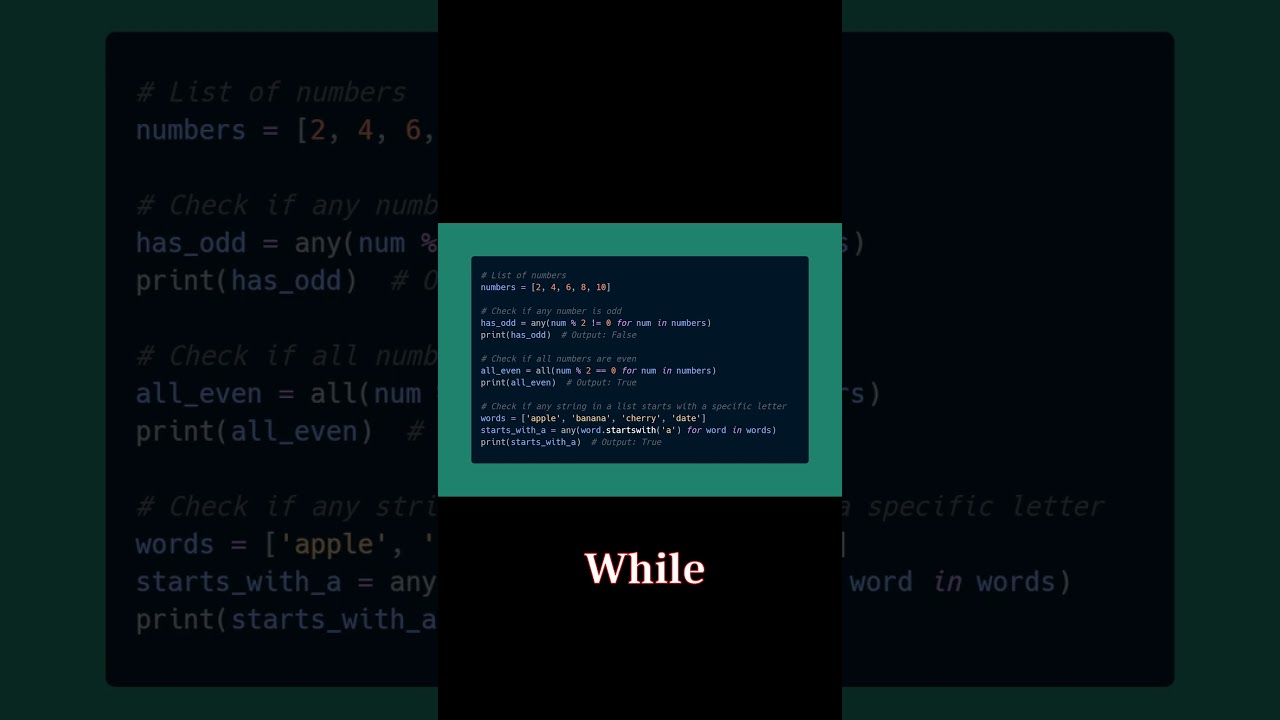When you need to check if any or all elements in an iterable meet certain conditions, Python’s any() and all() functions offer a concise and efficient solution. While commonly used, the true power of these functions is often underappreciated, especially in complex condition checks.
How It Works:
any(iterable): Returns True if at least one element in the iterable is true (or evaluates to true). Otherwise, it returns False.
all(iterable): Returns True if all elements in the iterable are true (or evaluate to true). Otherwise, it returns False.
Why It’s Cool: Using any() and all() can significantly simplify your code when checking multiple conditions. These functions are not only more readable than using loops and conditional statements but are also optimized for performance, as they short-circuit (stop evaluating) as soon as the result is determined.
#Python
#PythonTricks
#CodingTips
#Programming
#PythonTips
#EfficientCode
#DataProcessing
#CleanCode
#LearnPython
#CodeOptimization




コメント